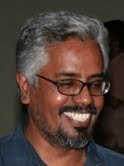UNFREEDOMS - GLOBAL AND LOCAL

One major media event that happened recently which was covered widely by the international media and english press in India was the shutting down of the commercial television channel Radio Caracas Television (RCTV) by Hugo Chavez. He decided not to renew the broadcasting licence of RCTV and instead handed over the frequencies to the
newly esatablished state channels. While the western media condemned the move as yet another
instance of intolerance and strangling of freedom of expression etc, the move didnt receive much
attention and analysis in Indian media especially in Malayalam. There was only an embarassed silence on their part. Some of the radical media analysts of the west condescendingly justified
Chavez' move as a result of the nation's 'little tradition of public broadcasting' and the fact that
licences for commercial televisions channels was in the first place given by military regimes that ruled the country earlier. According to Richard Gott of The Guardian, "The debate in Venezuela has been less to do with the allegead absence of freedom of expression than with a perennially tricky issue locally referred to as "exclusion", a short hand term for "race" and "racism". RCTV was not just a politically reactionary organisation that supported the 2002 coup attempt against a democratically elected government - it was also a white supremacist channel.. It was "colonial" television, reflecting the desires and ambitions of an external power..". Our comrades, in their admiration for Chavez, didnt even bother to analyse the issue, for Chavez is the only global icon (after the aging Castro) they have at the moment.
Meanwhile in India there is a similar move by the Union Government to curb radio and television. The Ministry of Information & Broadcasting has brought out a Draft Broadcasting Code for television, which according to reports, contemplates several draconian measures to strangle broadcasters
like FM radio, television and community radio. If this Code becomes law, it will severely restrict
freedom of expression and communication in the country. For example, according to this code broadcasters will not be allowed to criticise "friendly countries" or the judiciary etc. Many media activists and progressive organisations have come out in protest against the draft code. Once this code falls into place, sting operations, and anything that may be detrimental to the interests of any social groups or communities would not be allowed to be aired.
This brings to focus several issues crucial to democratic society, issues entangled with the global media industry, state power and local/regional/national aspirations relating to information and entertainment. These interests often work in tandem with each other and sometimes in conflict as
is the case in both the instances referred above. But it is very difficult to justify one instance and condemn another,
for freedom of expression is an issue of vital importance, which cannot be left to the whims and fancies or interests of any one of these forces. We cannot curb the diatribes of capitalism to substitute it with that of the state. Nor should we treat people as gullible children who have to protected from what 'we' perceive as 'perverse' influences..
Only by giving unconditional and total freedom to more and more expressions and representations in the public sphere and by allowing the people to receive and choose from any of them can we ensure a more healthy and informed civil society.
In which case, unfreedoms are just that, whether it be global, national or local..
Labels: hugo chavez, indian television, media freedom


0 Comments:
Post a Comment
Subscribe to Post Comments [Atom]
<< Home